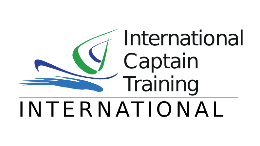The Yacht Master Coastal & Sail Power course is designed to equip students with the knowledge and skills necessary to command a sailing or power yacht up to 24 meters in length, up to 60 nautical miles from a safe harbor. The course covers advanced navigation, seamanship, and safety procedures. It is ideal for aspiring yacht captains and experienced sailors seeking formal certification.
Yacht Master Coastal Sail & Power Course Information
Course Objectives
- Master coastal navigation and pilotage.
- Develop advanced boat handling skills under sail and power.
- Understand meteorology and its impact on sailing.
- Learn advanced safety procedures and emergency protocols.
- Gain practical experience through on-water training.
Prerequisites
- Minimum age: 18 years.
- VHF Radio Operator Certificate.
- First Aid Certificate
- Minimum sea time: 30 days, 2 days as skipper, 800 miles, and 12 night hours (for Yachtmaster Coastal).
Course Duration
- Theory: 40 hours (classroom and online learning).
- Practical: 5 days on-water training.
Course Content
- Navigation and Chart Work
- Coastal navigation and pilotage.
- Use of nautical charts, electronic navigation aids (GPS, radar).
- Tides and currents, tidal calculations.
- Passage planning and execution.
- Meteorology
- Weather forecasting and interpretation.
- Understanding weather systems and their impact on sailing.
- Practical use of weather information for passage planning.
- Seamanship
- Advanced sail handling techniques.
- Boat handling under power.
- Anchoring and mooring techniques.
- Use of deck equipment and winches.
- Safety and Emergency Procedures
- Safety equipment and procedures.
- Man overboard recovery techniques.
- Firefighting and damage control.
- Search and rescue operations.
- Regulations and Responsibilities
- International Regulations for Preventing Collisions at Sea (COLREGs).
- Understanding of maritime laws and regulations.
- Responsibilities of a yacht master.
- Practical On-Water Training
- Navigation exercises.
- Boat handling in various conditions.
- Night sailing.
- Emergency drills and safety procedures.
Assessment
- Theory Exam: Written exam covering navigation, meteorology, and regulations.
- Practical Exam: On-water assessment of boat handling, navigation, and emergency procedures.
Certification
Upon successful completion of the course and exams, students will receive the ICT International Captain Training Academy Yacht Master Coastal & Sail Power certification, recognized internationally.
Career Opportunities
Graduates of this course can pursue various maritime careers, including:
- Yacht Captain for private and charter yachts.
- Sailing Instructor.
- Maritime Operations Manager.
- Roles in maritime safety and security.
